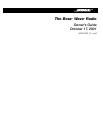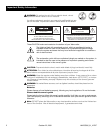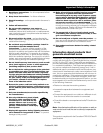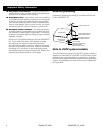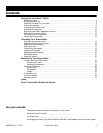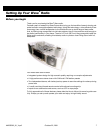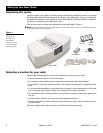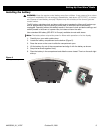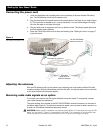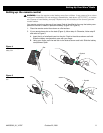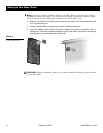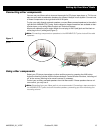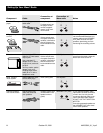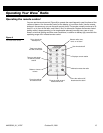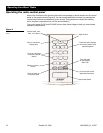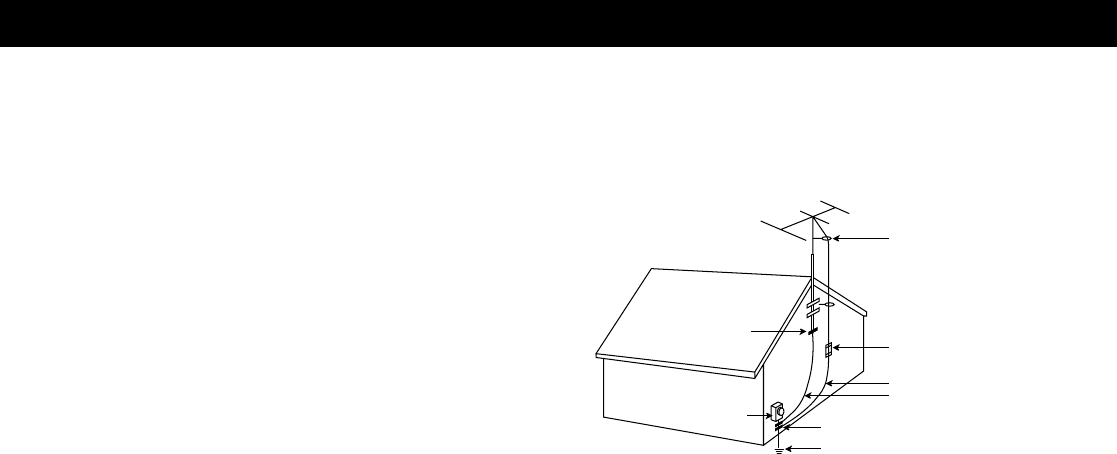
4 October 22, 2001 AM255380_01_V.PDF
Important Safety Information
18. Use proper power sources
– Plug the product into a
proper power source, as described in the operating in-
structions or as marked on the product.
19. Avoid power lines
– Use extreme care when installing
an outside antenna system to keep from touching pow-
er lines or circuits, as contact with them may be fatal.
Do not install external antennas near overhead power
lines or other electric light or power circuits, nor where
an antenna can fall into such circuits or power lines.
20. Ground all outdoor antennas
– If an external antenna
or cable system is connected to this product, be sure
the antenna or cable system is grounded. This will pro-
vide some protection against voltage surges and built-
up static charges.
Section 810 of the National Electrical Code ANSI/NFPA
No. 70 provides information with respect to proper
grounding of the mast and supporting structure,
grounding of the lead-in wire to an antenna discharge
unit, size of grounding conductors, location of antenna-
discharge unit, connection to grounding electrodes,
and requirements for the ground electrode. Refer to the
antenna grounding illustration on this page.
Antenna grounding
Example of antenna grounding as per National Electrical
Code, ANSI/NFPA 70.
Note to CATV system installer
This reminder is provided to call the CATV system installer’s
attention to Article 820-40 of the NEC (of USA) that provides
guidelines for proper grounding. In particular, it specifies
that the cable ground shall be connected to the grounding
system of the building, as close to the point of cable entry
as is practical.
Antenna lead-in wire
Antenna discharge unit
(NEC Section 810-20)
Grounding conductors
(NEC Section 810-21)
Groundclamps
Power service grounding
electrode system
(NEC ART 250, Part H)
Ground clamp
Electric service
equipment



